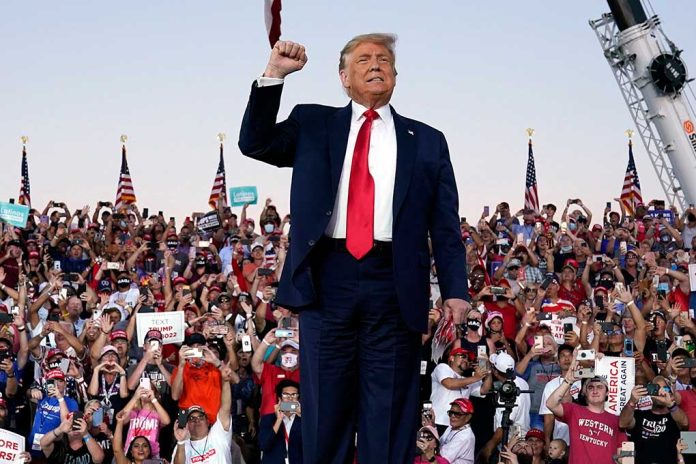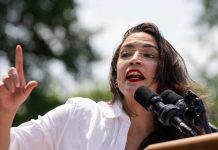
Trump’s renewed call for equitable NATO financial commitments echoes a firm demand for fair distribution, hinting at major shifts in international alliances.
At a Glance
- Trump emphasizes the need for European allies to increase NATO spending.
- Potential U.S. strategy adjustment to reduce military engagement in Europe.
- Trump hints at leveraging European contributions for policies concerning Russia and Ukraine.
- Shift in NATO dynamics may see Europe taking a greater defense responsibility.
U.S. Calls for Increased European Contributions
Donald Trump has called on European countries to significantly boost their NATO financial contributions, implying a “radical reorientation” of the military alliance for his potential second term. Trump has often highlighted discrepancies in defense spending between the U.S. and its allies, pushing for a reevaluation of these fiscal commitments to maintain fairness and prevent exploitation of U.S. resources.
European leaders are concerned about the ramifications Trump’s suggested policies might yield, as some countries have begun advocating for a more robust independent defense capability. Observers note that these discussions arise amid significant geopolitical shifts, including Russia’s involvement in Syria and escalating tensions with NATO.
Impact on NATO’s Future Strategy
The U.S. may maintain its nuclear umbrella over Europe but intends to transfer more military duties to European countries. Trump’s proposition includes crafting a two-tier system that limits U.S. defense assurances to nations meeting the 2% GDP defense expenditure target. Analysts warn that Europe might not be ready to shoulder the additional military roles, despite recent pledges to enhance defense spending.
Trump’s approach may also involve negotiating with Russia to resolve the Ukraine conflict. This move might necessitate NATO’s non-expansion into regions like Ukraine and Georgia. While some see this as potentially beneficial for regional stability, others express concern over the implications for European security alliances.
Relations with the EU
Trump’s return to the White House will pose a significant challenge for the European Union (EU). The US-EU relationship will become much less strategic and much less all-encompassing. Instead, EU and member state leaders will have to expend political…
— Atlantic Council (@AtlanticCouncil) November 6, 2024
Reactions from NATO and Global Players
European officials anticipate strict GDP contributions demands from Trump, reflecting his critique of NATO. Trump previously indicated that increased contributions from allies amounted to over $600 billion due to his firm stance. His insistence on equitable contributions from member countries underscores a serious commitment to negotiating better terms for America.
As Trump considers reducing U.S. military involvement in Europe to concentrate efforts on emerging threats from China, some European leaders advocate for autonomy in defense matters, potentially signaling a new era for NATO. The ongoing dialogue could lead to significant, lasting changes in how the alliance operates and responds to global conflicts.
Sources
1. Donald Trump Gives One Condition for US Remaining in NATO
2. Trump’s Plan for NATO Is Emerging














